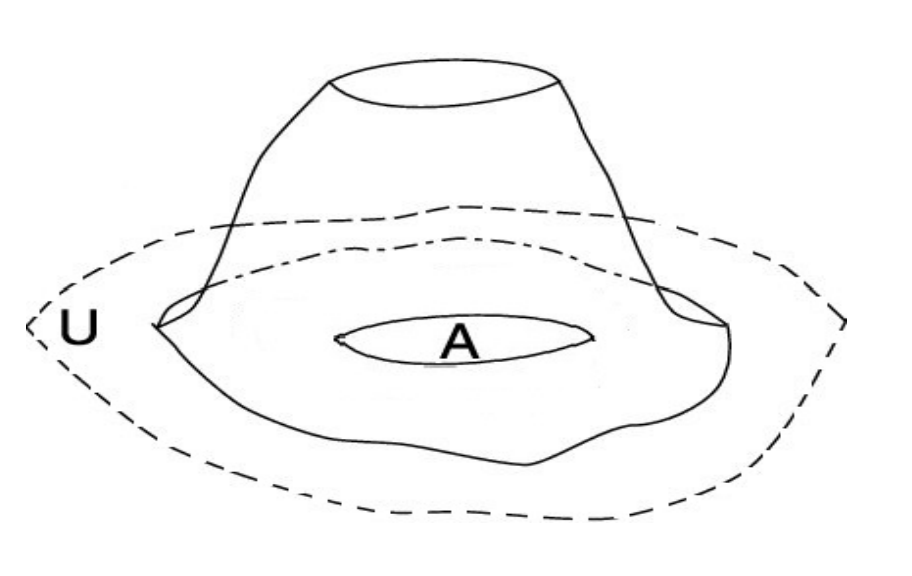微分流形初步的单位分解定理, 这个定理本质上是流形paracompactness所带来的结论. 它提供了一种通过乘上partition of unity函数的方式来将locally smooth的函数粘贴成global smooth的函数的方式. 下面的Whitney approximation theorem便是一个直接的例子.
Paracompactness of Manifold
First we give the construction of bump function. Here we use those function s.t. on cubic and outside .
Consider the function then . Take , and for all , for all . Take , then and on and outside . Finally, just take the function to be , where are coordinate function.
Lemma 1. Let be a topological space which is locally compact, Hausdorff and second countable, then is paracompact.
Proof
Proof. First, we construct a sequence of open sets s.t. compact, and . Let be a countable basis of and compact. This can be shown by following:
We consider the set with compact, we show that also a basis of . We only need to show , with . , compact and . Then
compact, then and compact.
Then we get such a countable basis: and compact.
Take , , let be the smallest number s.t. and . Then we have a sequence satisfying the condition in the beginning of proof. is a compact set and .
For any , for the cover of , we choose a finite subcover . This collection is obviously a countable and locally finite refinement of open cover . ◻
Partition of Unity
Definition 1. A partition of unity on is a collection of functions on s.t.
1. The collection of is locally finite;
2. for and for all and .
Now we give the partition of unity theorem.
Theorem 1 (partition of unity). Let be a smooth manifold and be an open cover of . Then there exists a countable partition of unity subordinate to the cover with compact for each .
Proof
Proof. We choose the sequence of and . For , let be the largest integer s.t. . Choose s.t. and let be a coordinate system centered at s.t. and contains cube .
Define is the bump function. Then is a function on which has value 1 on some open neighborhood of and has compact support in . For each , choose a finite set of points in s.t. covers , the form a locally finite family of subsets of .
Take , is a well-defined function and for each . For , define . Then is a partition of unity subordinate with compact. ◻
Theorem 2 (Whitney approximation theorem). Let be a smooth manifold, and a closed subset. Then for any continuous function which is smooth on and any positive continuous function , there exists so that for all and for all .
Here smooth on means with a function on and smooth on .
Proof
Proof. There is an open set and a smooth function defined on s.t. on . Let . Then is open in and .
Now we construct a open cover of , for any , let . Then is an open covering of . Let be a partition of unity subordinate the cover of and define a function on by
Since the support is locally finite, is smooth, on . Moreover, for any , we have
◻




